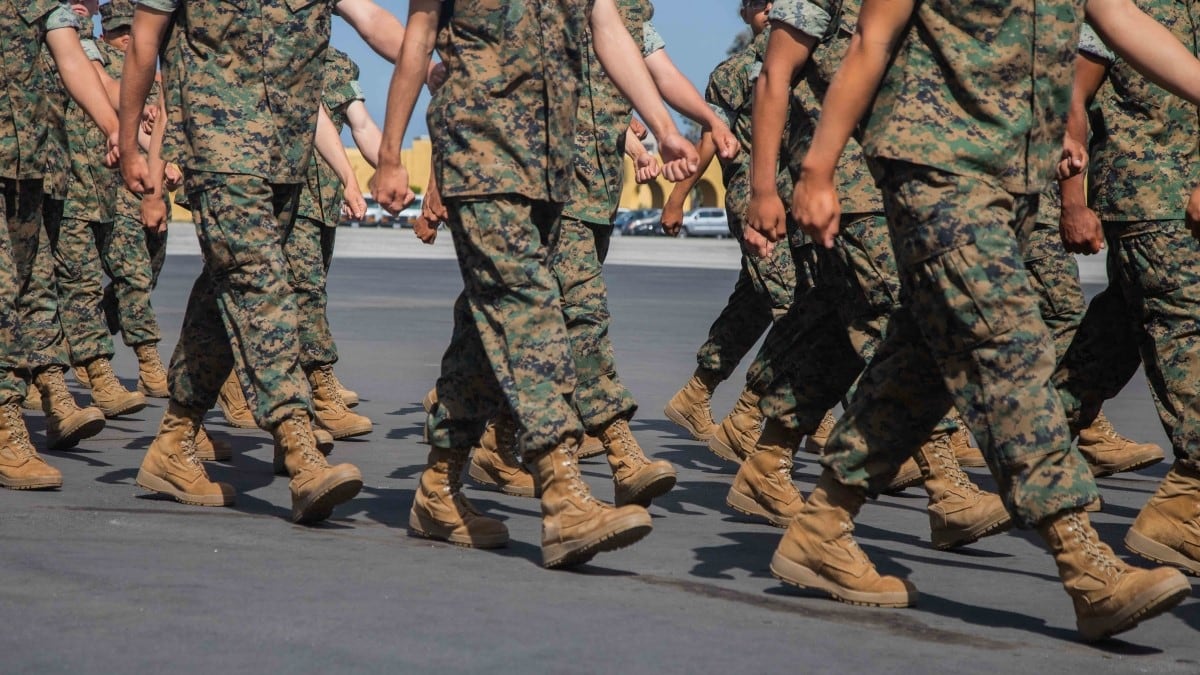A House panel on Wednesday advanced plans to fund large pay raises for enlisted troops next year and ban the Pentagon from providing travel stipends for abortion services in their initial draft of the annual defense appropriations bill.
The $833.1 billion measure would provide a 1% increase in overall spending for the military next fiscal year but likely faces significant changes when moving through the Republican-controlled House and Democrat-controlled Senate.
Republican members of the House Appropriations Committee’s defense panel praised the budget proposal as a crucial step forward for the military, even as some GOP lawmakers have criticized the increase as not large enough to keep pace with foreign adversaries.
“As we face renewed threats and aggressors across the globe, providing our men and women in uniform with the tools needed to deter, fight, and win is critically important,” full committee Chairman Tom Cole, R-Okla., said in a statement. “This bill strengthens America’s defense and the readiness of our armed forces.”
RELATED

The funding plan includes money for the military’s annual pay raise, scheduled to be 4.5% starting next January. If that becomes law, it’ll be the third consecutive year that all troops see a pay boost of more than 4% at the start of the new year.
But the appropriations bill goes even further on military pay, reserving about $2.5 billion to fund a pay raise of up to 15% more for junior enlisted service members.
That plan — offered unsuccessfully by the House Appropriations Committee last summer and revived by the House Armed Services Committee this year as part of its annual defense authorization bill — would bring almost every service member’s base pay to more than $30,000 a year, a move advocates hope will limit the financial strain on younger military families.
In a statement, defense subcommittee Chairman Ken Calvert, R-Calif., said the money will support “the true difference makers and our best national security assets: our men and women in uniform and their families.”
House Democratic lawmakers have offered support for the idea, but Senate leaders so far have provided only general support for the idea of boosting enlisted pay. The Senate Armed Services Committee is expected to unveil its own quality of life plans for the military next week.
Even if they support the pay raises, however, other provisions dealing with social issues included in the GOP defense budget plan could cause significant problems in passing the measure into law.
Republicans included language in the appropriations bill to end the Pentagon’s policy of providing travel stipend to troops who need to travel across state lines to access abortion services.
The policy has been used infrequently and cost less than $1 million last year, according to Defense Department figures. But it has been a point of contention for conservatives who say the policy circumvents state laws prohibiting abortions, and violates federal statute barring taxpayer funds to pay for the procedures.
Republicans have included similar language blocking abortions at Veterans Affairs facilities in their appropriations plans for that agency. President Joe Biden has threatened to veto any such provisions, and Senate Democratic leaders have promised to remove those provisions before any budget bills are finalized.
The budget bill also includes provisions blocking COVID-19 vaccine mandates in the military, another issue that could draw the ire of Senate lawmakers.
The full appropriations committee is expected to mark up the measure next week, with an eye towards chamber passage later this month. Completion of all of the appropriations bills is expected to drag on into the fall, likely occurring sometime after Oct. 1, the start of the new fiscal year.
Leo covers Congress, Veterans Affairs and the White House for Military Times. He has covered Washington, D.C. since 2004, focusing on military personnel and veterans policies. His work has earned numerous honors, including a 2009 Polk award, a 2010 National Headliner Award, the IAVA Leadership in Journalism award and the VFW News Media award.









